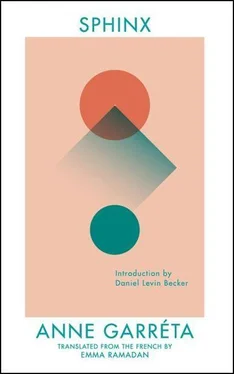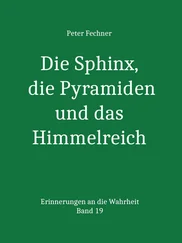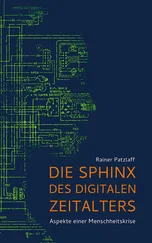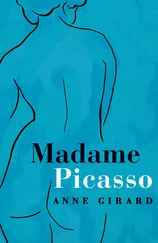Anne Garreta - Sphinx
Здесь есть возможность читать онлайн «Anne Garreta - Sphinx» весь текст электронной книги совершенно бесплатно (целиком полную версию без сокращений). В некоторых случаях можно слушать аудио, скачать через торрент в формате fb2 и присутствует краткое содержание. Год выпуска: 2015, Издательство: Deep Vellum Publishing, Жанр: Современная проза, на английском языке. Описание произведения, (предисловие) а так же отзывы посетителей доступны на портале библиотеки ЛибКат.
- Название:Sphinx
- Автор:
- Издательство:Deep Vellum Publishing
- Жанр:
- Год:2015
- ISBN:нет данных
- Рейтинг книги:3 / 5. Голосов: 1
-
Избранное:Добавить в избранное
- Отзывы:
-
Ваша оценка:
- 60
- 1
- 2
- 3
- 4
- 5
Sphinx: краткое содержание, описание и аннотация
Предлагаем к чтению аннотацию, описание, краткое содержание или предисловие (зависит от того, что написал сам автор книги «Sphinx»). Если вы не нашли необходимую информацию о книге — напишите в комментариях, мы постараемся отыскать её.
is a remarkable linguistic feat and paragon of experimental literature that has never been accomplished before or since in the strictly-gendered French language.
Anne Garréta
Pas un jour Emma Ramadan
Monospace
Sphinx — читать онлайн бесплатно полную книгу (весь текст) целиком
Ниже представлен текст книги, разбитый по страницам. Система сохранения места последней прочитанной страницы, позволяет с удобством читать онлайн бесплатно книгу «Sphinx», без необходимости каждый раз заново искать на чём Вы остановились. Поставьте закладку, и сможете в любой момент перейти на страницу, на которой закончили чтение.
Интервал:
Закладка:
I avoided going to the university as much as possible; the idea horrified me. But I went to the lectures on the Incarnation given on certain Thursdays by Padre***, a Spanish Jesuit. One day as I was leaving his class, he called me over, suggesting we have dinner together. The invitation was so casual, even bordering on nonchalant, that it seemed only natural to accept. Padre*** practiced his faith in the strictest orthodoxy, though some people accused him of violating its core commandments in his private life. Apparently he didn’t flee from worldly activities with sufficient horror. Because he wrote a column on culture for one of the larger evening newspapers and was the cofounder of a gastronomic circle, the students considered him a scandalous hypocrite, a deviant of decadent habits, which, I confess, made him pretty interesting to me. And so without hesitating I accepted his invitation for the next day.
Over dinner we vaguely alluded to the path it seemed I was about to quit. I think he understood my reasons for defecting and approved of them, but didn’t want to admit it. When I entered into the world of theology, I had aroused hope in many of the priests and professors, due as much to my own intellectual merit as to the overall intellectual weakness of the sons and daughters of well-established families who had devoted themselves to these studies. I inexplicably wasn’t living up to their hope that if I didn’t take the vow I would at least become a respectable doctor in theology who might bring back a bit of luster to the discipline, devalued as it was by the mediocrity of its traditional followers; the Church pines for these lights of Reason as much as it fears them. Young Catholics born, raised, and nurtured in the accepted family faith tend to lack audacity. Restricted by tight-laced morals, they retreat from thought as soon as a question comes beating too furiously against the flanks of their fortified certitudes. Doomed to inbreeding according to hallowed rituals, they shrink from all secular currents that aren’t weighed down by dogmas. The young girls, sensible and stupid, reserving their virginity for their husbands; the young men of old France, equally timid and crude under the contradictory effect of a suppressed sensuality that finds its outlet in military endeavors or during religious charity trips. Most of the participants of these theological cycles replaced intelligence and pertinence with narrow-minded diligence and a stubborn naïveté that nothing could disarm. The result was a sanctimonious flock that couldn’t countenance the idea that the purpose of philosophy was not to posit an unequivocal certitude, crying out body and soul to designate the “good” philosophy and condemn in turn the “bad.” They all congregated in the class of a theologian from Freiburg who specialized in this type of anathema. He stoked their base passions and exorcised their terrors. I attended his first class. He was determined to separate the proper from the improper in the ideas of our era. In the space of an hour, he derided all that had left its mark on the culture over the past two centuries. The audience was delighted at having within their grasp the arguments of someone in a position of authority, which had hitherto been cruelly lacking in their struggle against the materialists, dialecticians, analysts, and other genealogists. I never set foot in his class again after a heated discussion in which he placed all of his opponents — myself among them — at the mercy of his devout followers. They formed a cabal: they spoke of killing the black sheep; of the Freemasonry of relapsed Jews; of communists bankrolled by speculative German thought; of libidinal intellectuals conceived on the divans of cosmopolitanism. The lack of decorum in the debate, as much his archaic behavior, distressed me immeasurably. In the face of this crowd of imbeciles that prided itself on the title of “the Lord’s flock,” I was deciding whether to resort to violence or haughty resignation. I prayed ironically for this flock to transform into a blazing spit roast, or at least for the arrival of a blistering epidemic of brucellosis, neither of which ever came about.
This bad quarrel rendered the studious path odious to me and was the final push in my decision to stray from it. I took up the habit of studying in complete solitude at my house, and I would show up to the university exams without having attended any of the lectures. Padre*** directed my thesis, which I wrote in part while in residence at Solesmes Abbey for three weeks of perfect tranquility, benefiting from the resources of the Benedictine library.
One night we dined well in one of the Padre’s favorite restaurants. Over liqueur, after we had finished discussing the thousand problems we faced at the university, he proposed an outing he thought I might like, to a very exclusive nightclub where he was a member. The idea that a priest, in his cassock no less, could frequent these places that the traditional bourgeoisie condemn as places of debauchery might scandalize naïve souls. But in such places I encountered so many people that one would never expect to find there, and witnessed so many scenes that one would think implausible, that the slight surprise I felt then seems to me, retrospectively, to be the mark of an almost ridiculous simplicity. I didn’t take the Padre for a saint, I didn’t think it improper that a priest went to these places of pleasure, nor even that he went there habitually, and I was no doubt guilty of still more shameful slumming. But the contrast between our pious conversation in the calm of a private room and the surging of music and movement that we would certainly encounter in this club shocked me prophetically, so to speak.
We had to take a taxi there. It was raining, one of those April showers that unfolded a moving curtain of icy pleats in the troubled night air. We sat in silence. I don’t know what the Padre was thinking about but I suspect he was observing me, looking straight ahead of him at the windshield of the car, which acted as a mirror in the blackness of the night. The taxi dropped us off in front of an illuminated entrance sheltered from the rain by a white canopy. The Padre rung at the imposing metallic door that bore a copper plaque with the words “Apocryphe — Private Club.” A mesh spy-hole half-opened, then rapidly closed again. A woman opened the door only enough for us to enter, and then shut it sharply behind us. I couldn’t distinguish anything at first, passing from the flood of light in the entrance to the shadows of the antechamber.
A staircase that subsequently I would descend countless times led past the cloakroom and into the club itself. There the maître d’ sat us at a table in the corner, next to a staircase leading to the dance floor. From this table we had an almost complete overview of the club without the music deafening us, as it would have done one or two rows closer to the floor. The Padre introduced me to the manager, who came to greet us. He brought us a bottle along with two glasses and some orange juice, which he liked to add to his whiskey. This first time I didn’t have the leisure I would have liked to observe the play of lights, the movements and appearances of the people there. The powerful booming of the loud speakers made it so that I had to lean in as closely as possible to hear and to be heard. And the conversation I had that night with the Padre, if I no longer remember it, swept along like so many others I had under similar circumstances, was absorbing enough that I only rarely raised my head. I retain only a fragmentary impression of this first night at the Apocryphe — my first experience at a place like this — as of a city faithfully reconstructed after a bombardment, pieced together from the testimony of photographs. Lights and music of such intensity that space and time were no longer coherent, lacerated and turned upside down in what seemed to be complete chaos. The countless mirrors that went as high as the ceiling and covered even the walls and pillars multiplied dimensions and bodies, preventing me from defining and pinpointing the effects I was feeling and turning the Apocryphe into a topographical enigma.
Читать дальшеИнтервал:
Закладка:
Похожие книги на «Sphinx»
Представляем Вашему вниманию похожие книги на «Sphinx» списком для выбора. Мы отобрали схожую по названию и смыслу литературу в надежде предоставить читателям больше вариантов отыскать новые, интересные, ещё непрочитанные произведения.
Обсуждение, отзывы о книге «Sphinx» и просто собственные мнения читателей. Оставьте ваши комментарии, напишите, что Вы думаете о произведении, его смысле или главных героях. Укажите что конкретно понравилось, а что нет, и почему Вы так считаете.












